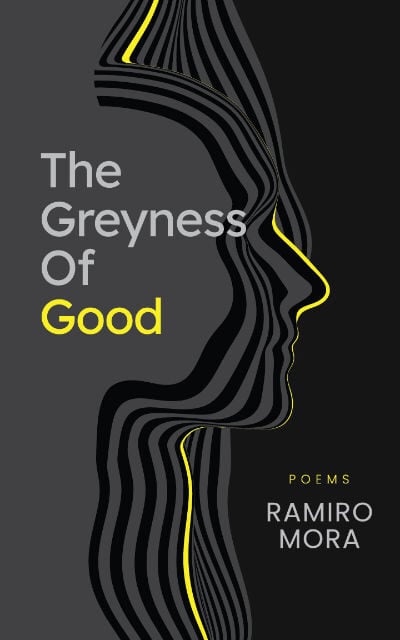The Poetry of Ramiro Mora
Raw, unfiltered poetry that strips away pretension and speaks directly to readers. I explore the human condition, social dynamics, and uncomfortable truths with unflinching honesty and occasional dark humor.
Sign up for my monthly newsletter on poetry in uncertain times.

About the Author
Ramiro Mora
I’ve been writing poetry all my life. As a child, I was surrounded by ornaments of Chilean poet Pablo Neruda and inspired by the playful rhymes of Dr. Seuss.
Though I wrote poetry and short stories as a teenager, receiving some recognition, my creative path was transformed by three major revelations. The first came in my early twenties through discovering Leonard Cohen, whose work showed me how one line could tell a whole story with clarity, imagery, and beauty in simple words.
The second and third revelations came through Charles Bukowski and Irving Layton. Bukowski’s rawness, honesty, and brutality left me in awe, while Layton’s poems were heavy and stung deep, occasionally leaving me drained. Though I attempted to emulate both poets, this initially led to an inauthentic voice.
The COVID pandemic provided a turning point. During lockdown, I focused intensely on my poetry, confronting the essential question: “Whom do I write for?” This period of reflection allowed me to discover my authentic voice and develop my distinctive “graffiti poetry” style.
This approach uses as few words as possible to write about everyday events—where one word is worth ten. My poems tell stories about the human condition and our shared human experience, specifically geared toward people who don’t generally read poetry.
My debut collection, “The Greyness of Good,” represents the culmination of this journey.
Latest Articles
-
Chile – The Land of Poets
Chile earned the nickname “Land of Poets” for its rich literary history. From Neruda’s romantic verses to Mistral’s lyrical nature poetry.
-
Leonard Cohen – The God of Poetry
A tribute to Leonard Cohen’s profound influence—from his poetry and music to his elegant demeanor, featuring memorable lyrics from his most beloved songs.
-
What is a Love Poem?
From childhood rhymes to Shakespeare’s declarations, love poetry captures every stage of the heart’s journey: declared, committed, renounced, and self-love.




